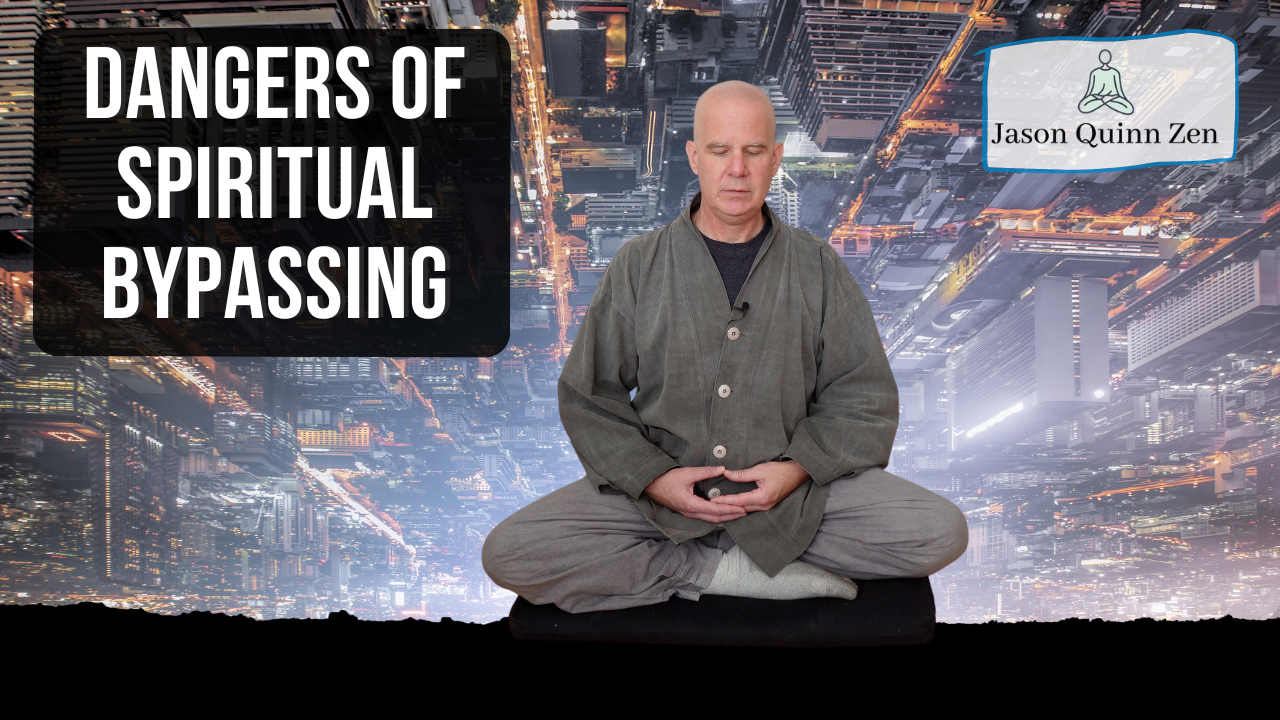
During the Q&A at the Sacramento Buddhist Meditation Group, someone asked about a teaching they had received long ago from a different tradition. They were told not to label things as good or bad, right or wrong, to let go of like and dislike, and instead focus on their own mind and “saving themselves.”
But then they asked, “What about all the violence, injustice, and war in the world? Aren’t those bad things?”
They were struggling with the idea that, according to this teaching, we’re not supposed to do anything—just observe the world as it is, because after all, “life is suffering,” as the Buddha said.
The Problem with That Approach
I've heard questions like this many times, and I think it's important to address them. If we look at the Buddha’s life, we see that after experiencing enlightenment under the Bodhi tree, he didn’t stay there. He didn’t retreat into a blissful state and avoid the world. He got up and spent the next 49 years teaching others.
That's not bypassing—that’s engagement.
There’s also the example of Kuan Yin, the Bodhisattva of Compassion, who hears the cries of the world and responds with love and care. The Zen school I teach in, the Kuan Um School of Zen, is named after her. She symbolizes what real spiritual practice should look like: clear seeing, followed by compassionate action.
But sometimes people fall into what I call a “Zen sickness” or a “Buddhist sickness.” This happens when we become attached to fixed ideas about Zen, enlightenment, or what it means to be spiritual. These attachments can become their own form of delusion—and if we remain stuck in them, we may end up creating even more suffering, both for ourselves and for others.
What Is Spiritual Bypassing?
The term spiritual bypassing can be defined as "the tendency to use spiritual practices to avoid dealing with unresolved emotions and psychological wounds. It can also be described as attempts to rise above and deny unpleasant emotions, experiences, and realities in order to feel good and avoid discomfort and painful truths."
Many of us have avoided, or are avoiding, unpleasant emotions and experiences—avoiding the suffering of this world. People often distract themselves with alcohol, drugs, or by getting lost in social media. But I’ve also seen people do this through meditation or spiritual practice.
The Importance of a Sincere Practice
This is why an authentic and sincere practice is so important. As I’ve said in many of my recent talks: every moment is an opportunity to see through our delusions—including our spiritual ones.
We have to let go of our attachments to our ideas and beliefs, even ideas about Zen, enlightenment, and helping others, when we connect directly with this moment, and just respond accordingly to the moment as it is arising. Nothing extra.
A Personal Story
In my book, No-Nonsense Zen for Beginners, I shared a story from a family trip to the beach. It was a beautiful day, but there were riptide warnings, which are extremely dangerous. Our kids were four and eight at the time. My wife and I made it clear: if they went near the water, an adult had to be with them.
My daughter wasn’t interested in going near the waves, but my son was more adventurous. I watched him carefully. At one point, I saw a big wave coming and called out—he did exactly what we’d practiced: he ran to shore.
But when I turned, I saw the wave had picked up my daughter and pulled her in.
And in that moment, there was no thinking—no "good or bad," no "right or wrong." I just acted. I reached in and pulled her out.
That moment was pure response of our original nature. There was no idea, belief, or philosophy. Just action.
The Capacity to Respond
Of course, not everyone feels like they have the capacity to respond to the world. Sometimes we’re dealing with so much of our own suffering that we can barely take care of ourselves. I’ve been there.
When I first began practicing, I did a long retreat in Korea—not to escape the world, but to gain the capacity to face it. But in order to do that, I had to face my own karma and delusions first.
After some time in practice, maybe your mind becomes clearer. You relieve your own suffering. And if that’s true—if your mind is truly clear—then it simply reflects the world as it is. And when it sees suffering, it responds with compassion and action, just like Kuan Yin.
For All Beings
Maybe you’re not there yet. Maybe the suffering feels too overwhelming. That’s okay. That’s why we practice—and why we practice together: in community, on retreat, and with clear intention. Practice gives us the courage to look at our suffering.
Our practice should not be an escape. It should be a path that helps us face reality and respond to suffering—our own and others’—with clarity and compassion.
So we make this vow: my practice is for all beings. And that includes me, because I am not separate from all beings. And this vow is not only for our practice—it is for our lives.


